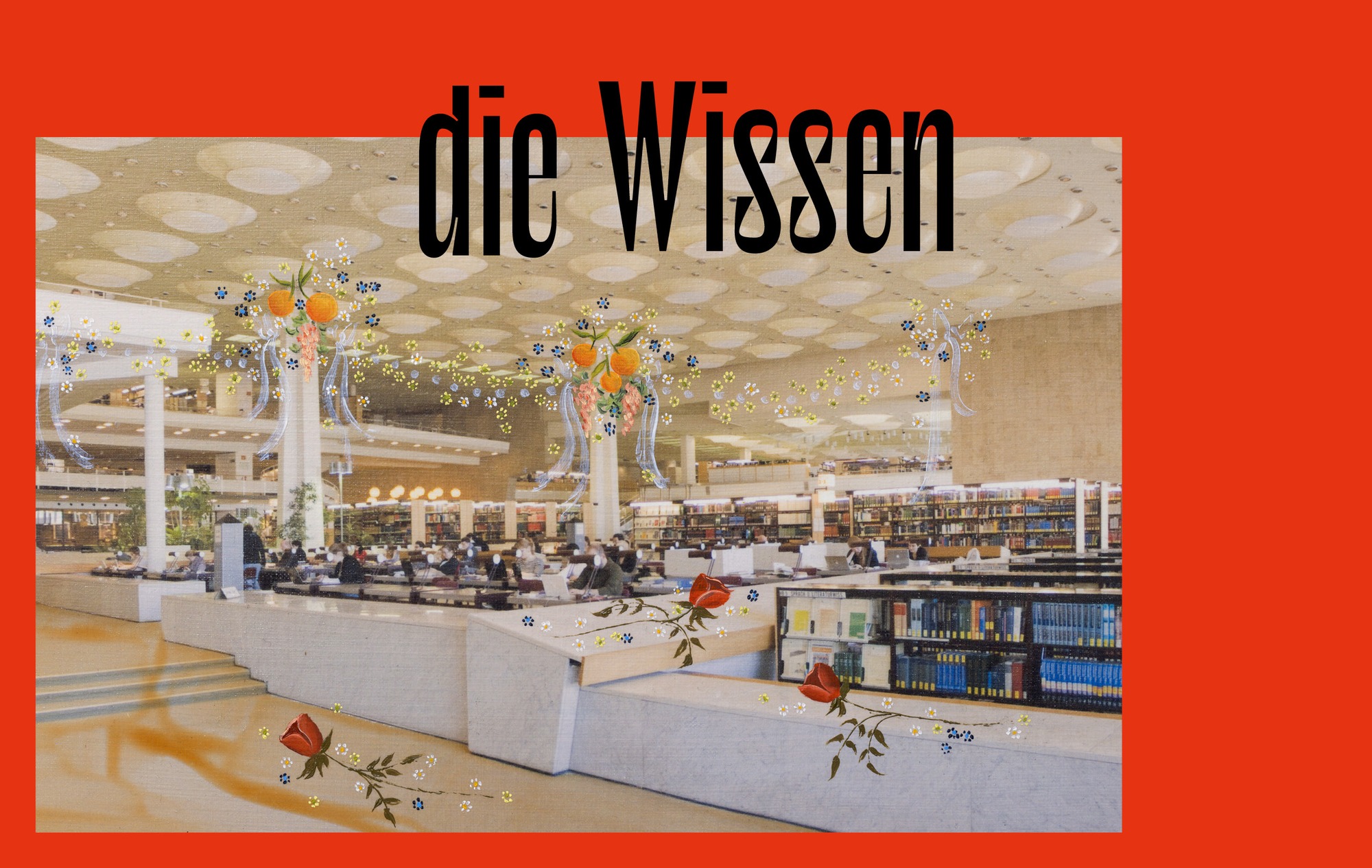die Wissen
Nooshin Askari, Hiwa K, Michelle & Noel Keserwany, Elif Saydam, Vina Yun with Moshtari Hilal
08 Jul - 08 Oct 2023

Elif Saydam, Staatsbibliothek (Stabi), Potsdamer Platz (detail), 2022. Courtesy the artist and Tanya Leighton, Berlin / Los Angeles. Photo: Julien Gremaud. Design: Anna Neuner.
With Nooshin Askari, Hiwa K, Michelle & Noel Keserwany, Elif Saydam and Vina Yun with Moshtari Hilal
In German grammar, the article determines the gender, number, and case of a noun. The dictionary says “das Wissen” (knowledge) can only be used in the singular and with a neuter article, implying the idea of a neutral canon. A canon that differentiates between right and wrong. Something to be assimilated, memorized, and then reproduced when needed. People with multiple belongings, longings, and varied horizons of experience know more than that; they embody and live their knowledges (die Wissen) of different situations and environments. They inhabit multiple selves and can feel through them simultaneously as a result of having had to continuously learn how knowledge is bound to place, situation, and context. Their lived experience tells them that what is right and wrong cannot be answered in the same way everywhere, with every person, and in every moment. Knowledges manifest physically. They are inscribed, sometimes reconciling and sometimes antagonistically, but always present.
The show die Wissen is the second part of the TAXISPALAIS trilogy on togetherness tackling the overarching question of how we can discuss and practice discourses of multiple belongings more adequately in Western Europe. The artists in this exhibition are working with die Wissen and share these knowledges through their art.
Curated by Setareh Shahbazi & Nina Tabassomi
In German grammar, the article determines the gender, number, and case of a noun. The dictionary says “das Wissen” (knowledge) can only be used in the singular and with a neuter article, implying the idea of a neutral canon. A canon that differentiates between right and wrong. Something to be assimilated, memorized, and then reproduced when needed. People with multiple belongings, longings, and varied horizons of experience know more than that; they embody and live their knowledges (die Wissen) of different situations and environments. They inhabit multiple selves and can feel through them simultaneously as a result of having had to continuously learn how knowledge is bound to place, situation, and context. Their lived experience tells them that what is right and wrong cannot be answered in the same way everywhere, with every person, and in every moment. Knowledges manifest physically. They are inscribed, sometimes reconciling and sometimes antagonistically, but always present.
The show die Wissen is the second part of the TAXISPALAIS trilogy on togetherness tackling the overarching question of how we can discuss and practice discourses of multiple belongings more adequately in Western Europe. The artists in this exhibition are working with die Wissen and share these knowledges through their art.
Curated by Setareh Shahbazi & Nina Tabassomi
